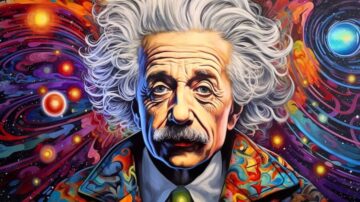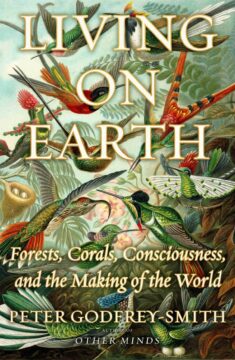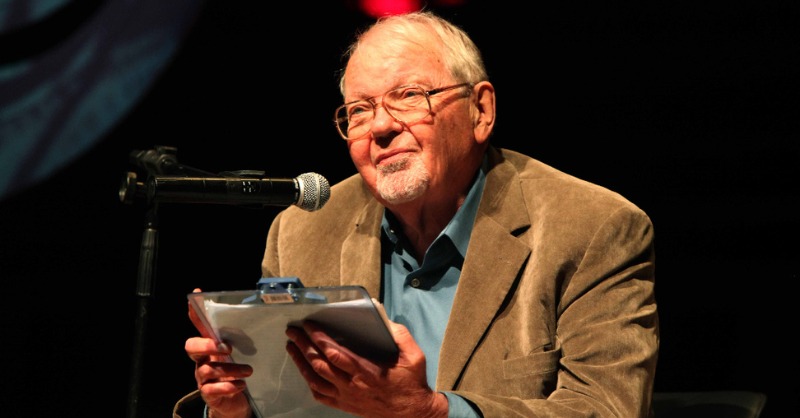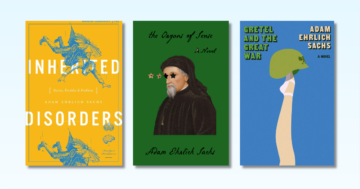Benjamin Wallace-Wells in The New Yorker:
 Vice-Presidential debates are normally for the archives: the transcript gets recorded and then filed away. Strain your memory and try to recall: Who won the debate between John Edwards and Dick Cheney? Biden-Ryan? Even Harris-Pence, just four years ago? In the rush of the Presidential race, these events were simply speed bumps. The best way to approach Tuesday night’s version was with a certain measure of historically earned skepticism. Was there any reason to think that this Vice-Presidential debate would actually matter—would even be remembered—by Election Day, now a little more than a month away, when so few have in the past?
Vice-Presidential debates are normally for the archives: the transcript gets recorded and then filed away. Strain your memory and try to recall: Who won the debate between John Edwards and Dick Cheney? Biden-Ryan? Even Harris-Pence, just four years ago? In the rush of the Presidential race, these events were simply speed bumps. The best way to approach Tuesday night’s version was with a certain measure of historically earned skepticism. Was there any reason to think that this Vice-Presidential debate would actually matter—would even be remembered—by Election Day, now a little more than a month away, when so few have in the past?
Maybe not. But during ninety remarkably fast-talking minutes in New York—verbally, both candidates are speed demons—the Ohio senator J. D. Vance moved the narrative of the race in a small but perceptible way toward the Republican side. Vance was first to every touchstone that mattered—the first to introduce himself personally to the American people and to bring up the meagre and pressured working-class circumstances in which he was raised, the first to insist that his was the ticket to favor “clean air” and “clean water,” the first to credit his running mate, Donald Trump, with an “economic boom unlike we’ve seen in a generation in this country.” His intent seemed simple—to persuade voters, who are broadly dissatisfied with the direction of the country, that the Democrats are largely responsible for it. But Vance also had an advantage in cunningness. The young senator even managed to turn around a question on family separation, one of the more reprehensible episodes of the Trump years. “Right now in this country . . . we have three hundred and twenty thousand children that the Department of Homeland Security has effectively lost,” he said. “The real family-separation crisis is unfortunately Kamala Harris’s wide-open southern border.”
More here.
Enjoying the content on 3QD? Help keep us going by donating now.

 Scientific breakthroughs rely on decades of diligent work and expertise, sprinkled with flashes of ingenuity and, sometimes, serendipity. What if we could speed up this process?
Scientific breakthroughs rely on decades of diligent work and expertise, sprinkled with flashes of ingenuity and, sometimes, serendipity. What if we could speed up this process? The first time I tried to write this essay, I failed. It was the middle of the pandemic—a time in which uncountable numbers of introspective personal essays were written to no apparent end—and I watched Sans Soleil, director Chris Marker’s dreamlike 1983 travelogue. I was working at a marketing agency at the time, suffusing strategic briefs with literary ambition, and something about the way Marker’s film faded from documentary to sci-fi to philosophical reverie ignited long-dormant neurons in my brain. Sleeper cells dissatisfied with a life in service of internet content and client work assembled. They blew up access tunnels and sabotaged meeting preparation protocols. I wrote something big and haunted about my experience as a writer and intended to publish it, in an act of vainglorious career suicide, on LinkedIn.
The first time I tried to write this essay, I failed. It was the middle of the pandemic—a time in which uncountable numbers of introspective personal essays were written to no apparent end—and I watched Sans Soleil, director Chris Marker’s dreamlike 1983 travelogue. I was working at a marketing agency at the time, suffusing strategic briefs with literary ambition, and something about the way Marker’s film faded from documentary to sci-fi to philosophical reverie ignited long-dormant neurons in my brain. Sleeper cells dissatisfied with a life in service of internet content and client work assembled. They blew up access tunnels and sabotaged meeting preparation protocols. I wrote something big and haunted about my experience as a writer and intended to publish it, in an act of vainglorious career suicide, on LinkedIn. P
P I first met
I first met  Though the history of experimental film is rife with iconoclastic visionaries, Robert Beavers somehow remains one of its under-sung heroes. Together with his partner, Gregory Markopoulos (1928–92), Beavers developed an approach to cinema defined by its singular and uncompromising rigor, yielding a body of work celebrated as much for its poetic beauty as its complex formal investigation of the filmmaking apparatus. While continuing to make films to this day, Beavers also helms the Temenos, an open-air theatre in Lyssaraia Greece, dedicated to screenings of Markopoulos’s sprawling magnum opus, Eniaios (1947–91).
Though the history of experimental film is rife with iconoclastic visionaries, Robert Beavers somehow remains one of its under-sung heroes. Together with his partner, Gregory Markopoulos (1928–92), Beavers developed an approach to cinema defined by its singular and uncompromising rigor, yielding a body of work celebrated as much for its poetic beauty as its complex formal investigation of the filmmaking apparatus. While continuing to make films to this day, Beavers also helms the Temenos, an open-air theatre in Lyssaraia Greece, dedicated to screenings of Markopoulos’s sprawling magnum opus, Eniaios (1947–91). I
I W
W For a while there in the late nineties, it seemed to me like every other book of poetry that I flipped open in the bookstore was prefaced by an austere epigraph from the writings of Ludwig Wittgenstein. Plato, Rousseau, Nietzsche, Sartre, and Wittgenstein—for all their many differences—enjoy a special status as “poets’ philosophers” in the annals of literary history. Other lofty thinkers fly under poets’ collective radar; I have yet to come across a volume of verse prefaced by a quotation from David Hume. What makes some philosophers, and not others, into poets’ philosophers remains a mystery to me. But I’ve never really thought of Hannah Arendt as one of them.
For a while there in the late nineties, it seemed to me like every other book of poetry that I flipped open in the bookstore was prefaced by an austere epigraph from the writings of Ludwig Wittgenstein. Plato, Rousseau, Nietzsche, Sartre, and Wittgenstein—for all their many differences—enjoy a special status as “poets’ philosophers” in the annals of literary history. Other lofty thinkers fly under poets’ collective radar; I have yet to come across a volume of verse prefaced by a quotation from David Hume. What makes some philosophers, and not others, into poets’ philosophers remains a mystery to me. But I’ve never really thought of Hannah Arendt as one of them. If a change of style is a change of subject, as Wallace Stevens averred, then a change of syntax is a change of meaning. Word order is, if not all, then nine tenths. I exaggerate, but I do so advisedly, as a corrective to the overemphasis on word choice, the unjust rule of the mot juste (recall here the old saying about the difference between lightning and a lightning bug) that dominates, to the detriment of other concerns, contemporary literature and creative writing. At times, this passion for the right—or the unusual—word reaps dividends; at others, it merely produces an uncalled-for flood of verbed nouns, portmanteaus, adjectives wrenched out of joint.
If a change of style is a change of subject, as Wallace Stevens averred, then a change of syntax is a change of meaning. Word order is, if not all, then nine tenths. I exaggerate, but I do so advisedly, as a corrective to the overemphasis on word choice, the unjust rule of the mot juste (recall here the old saying about the difference between lightning and a lightning bug) that dominates, to the detriment of other concerns, contemporary literature and creative writing. At times, this passion for the right—or the unusual—word reaps dividends; at others, it merely produces an uncalled-for flood of verbed nouns, portmanteaus, adjectives wrenched out of joint. I
I The key structure of the doctrine of nuclear deterrence is audible in the September 4, 2024, speech by U.S. Deputy Under Secretary of Defense Cara Abercrombie: “Any nuclear attack by the DPRK against the United States or its allies and partners is unacceptable and will result in the end of that regime.” The doctrine, which the United States has embraced since the Cold War, aims to prevent an adversary from launching a nuclear weapon by assuring that any first strike will be followed by a retaliatory second strike, whose effects will equal or exceed the original damage and may eliminate the adversary altogether. This annihilating reflex of deterrence is equally audible in the quiet words of the Department of Defense in its web page on “America’s Nuclear Triad,” its sea-based, land-based, and air-based delivery platforms: “The triad, along with assigned forces, provide 24/7 deterrence to prevent catastrophic actions from our adversaries and they stand ready, if necessary, to deliver a decisive response, anywhere, anytime.”
The key structure of the doctrine of nuclear deterrence is audible in the September 4, 2024, speech by U.S. Deputy Under Secretary of Defense Cara Abercrombie: “Any nuclear attack by the DPRK against the United States or its allies and partners is unacceptable and will result in the end of that regime.” The doctrine, which the United States has embraced since the Cold War, aims to prevent an adversary from launching a nuclear weapon by assuring that any first strike will be followed by a retaliatory second strike, whose effects will equal or exceed the original damage and may eliminate the adversary altogether. This annihilating reflex of deterrence is equally audible in the quiet words of the Department of Defense in its web page on “America’s Nuclear Triad,” its sea-based, land-based, and air-based delivery platforms: “The triad, along with assigned forces, provide 24/7 deterrence to prevent catastrophic actions from our adversaries and they stand ready, if necessary, to deliver a decisive response, anywhere, anytime.” Difficult relationships between fathers and sons have been fodder for writers for millennia. Sometimes these relationships are simply power struggles, as in so many
Difficult relationships between fathers and sons have been fodder for writers for millennia. Sometimes these relationships are simply power struggles, as in so many  The early days of the pandemic were a complicated time for a lot of couples.
The early days of the pandemic were a complicated time for a lot of couples.